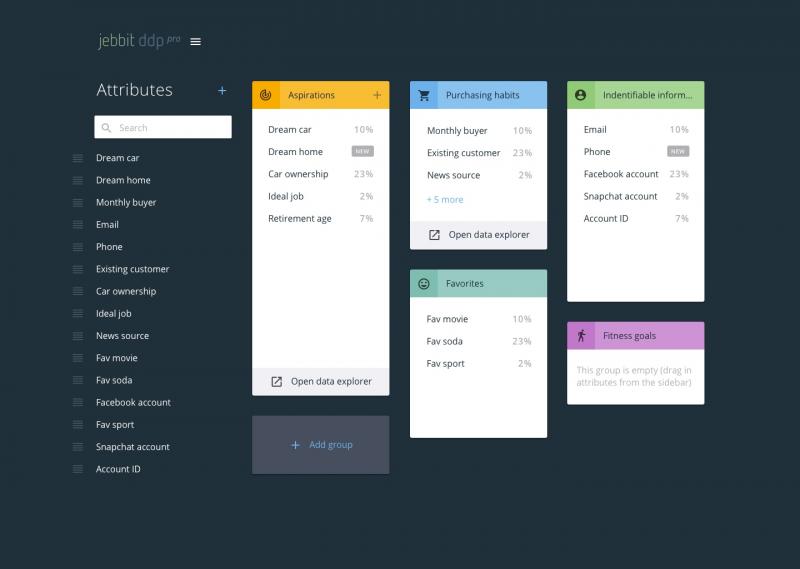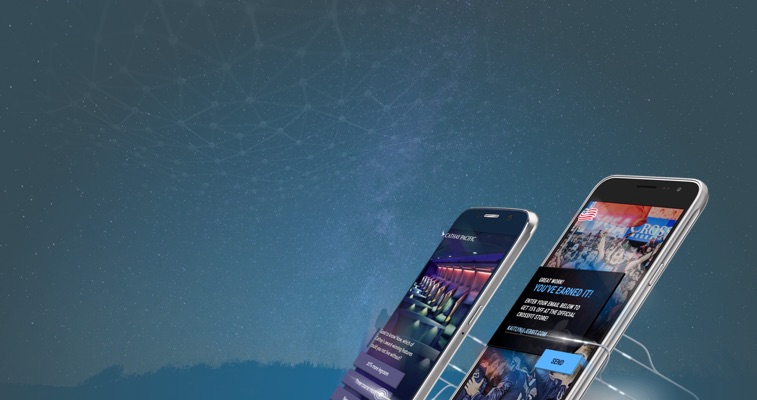Entrepreneurs get caught up in the skyrocket unicorn stories which are rare. Most successful companies are not an overnight success story. It takes a great team to be patient and figure out the right product market fit. Then, the market opportunity needs to be large enough to attract the interest from venture capitalists.
The story of Jebbit is one that every entrepreneur should read because it reflects reality.

The company’s founders, Tom Coburn and Jonathan Lacoste, met at Boston College, which has a growing number of successful entrepreneurial alumni who have started companies like WePay, Drizly, and others.
The duo came together to participate in the school’s business plan competition. The original idea formulated from Coburn who saw a need for a new form of interactive advertising targeted towards college students. The company helped brands ensure that consumers understood their advertising by creating consumer experiences where brands paid and consumers were rewarded per every question answered about the advertisement. Jebbit would reward consumers with monetary or exclusive rewards for providing the right answers. In return, brands knew that consumers truly understood their messaging.
After seeing some initial traction, Coburn and Lacoste both dropped out of Boston College to focus on their entrepreneurial endeavors. Jebbit also caught the attention of local angels, like Dharmesh Shah of HubSpot and Jay Batson of Acquia, which might have been a turning point as to why Jebbit still exists today.

“The Boston tech community really came together for us in terms of brands, investors, and mentors,” said Lacoste. “It is a testament of how an ecosystem can help support a startup.”
Fast forward six years later, Jebbit raised their Series A round of funding.
Entrepreneurship and building a company is hard and the path to where Jebbit is today was an iterative process. The company transitioned from a website where students answered questions for brands to an interactive content platform focused on mobile engagement.
Before we get into what Jebbit is doing today, you might wonder how they survived for six years before raising their A round of funding.
Lacoste attributed their survival to an early focus on revenue, an understanding team which has been committed to the long-term vision of the company, and great mentors, such as Katie Rae and Reed Sturtevant, who they met while participating in the 2013 Boston class at Techstars.

Another key aspect to Jebbit success is an obvious one that some entrepreneurs might miss. The company was constantly listening to the feedback from customers and they worked tirelessly to make sure they were addressing critical problems.
These days, Jebbit is still helping brands engage with consumers in a meaningful way, but their solution is now focused on today’s mobile world. Jebbit realized that there was an opportunity to disrupt traditional digital marketing by creating what they are calling the world’s first Declared Data Platform.
“We found a new way to help brands collect the right data through digital experiences,” said Lacoste.
Today, consumers are constantly checking their phones in micro-moments, like when they are standing in line, so it is tough to truly understand consumers’ intent.
This is where Jebbit comes in. They help brands collect the right data or what they are calling declared data through digital experiences.
The problem they recognized is that a lot of companies rely on third party data in an attempt to serve the right ads to you. For example, an airline might think they know you. They will track your browsing behavior and buy information from third party data from companies like Acxiom or Oracle Data Cloud which will tell them things like your age, gender, or even your income.
The problem with this example comes down to the fact that the airline still has no idea what your travel intentions are and the likelihood of you being a customer.
Jebbit helps companies solve this issue with a simple philosophy: Let’s directly ask the consumer these questions.
The company accomplishes this goal through interactive and immersive consumer experiences. When a consumer “declares” their interest, the value of that consumer has a much higher probability of converting into revenue.
Cathay Pacific Airways is a client of Jebbit and they have created a mobile experience which walks consumers through a series of questions like: “When I travel, the one item I can’t forget is...” or “My favorite way to immerse myself in a new place is to...” After four questions, they finish with the last and most meaningful question “When are you looking to travel?”

Translation… a high value leads with a much higher rate of conversion.
Jebbit’s recent $6.8M Series A round of funding was led by Manifest Investment Partners, a new firm based in San Francisco. The firm has local ties to the Boston area via General Partner and MIT data science professor, Sinan Aral.
The company’s offices are located on South Market Street in Boston. They currently have 36 employees and plans to hire another 15-20 people by the end of this year.
Jebbit is a great example of an ecosystem at its best. Years ago, it was incredibly difficult for first-time founders in the Boston area to get the proper resources and support they needed to launch companies. Thankfully, that is a distant memory.

